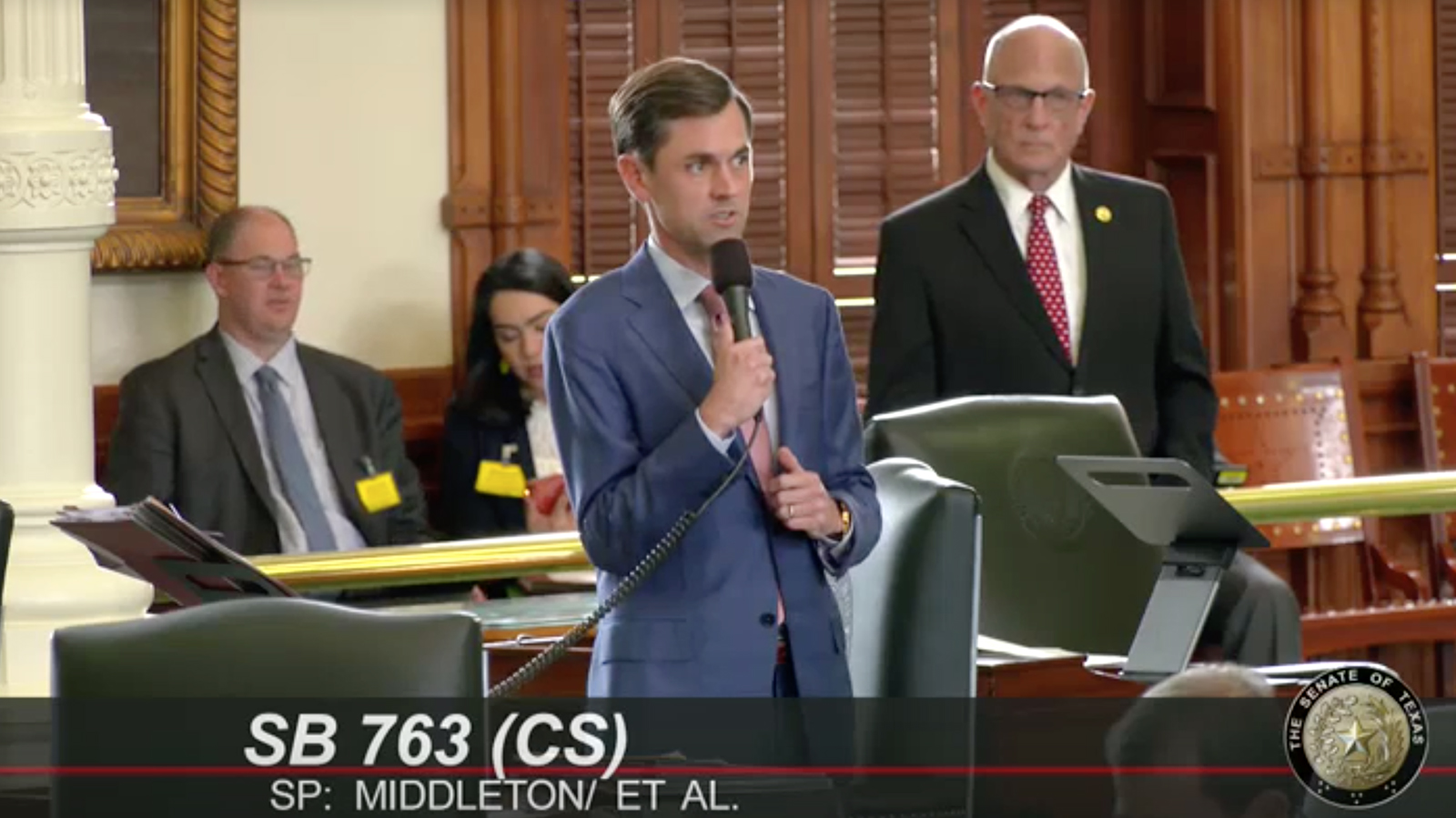(RNS) — Texas’ Republican-dominated legislature is working its way through a slate of bills aimed at increasing religion’s presence in the state’s public schools, drawing criticism from Democrats, clergy and activists who say the proposals violate the separation of church and state and are emblematic of Christian nationalism.
The controversy revolves around three bills: One mandates the display of the Ten Commandments in public schools; another allows school districts to require local campuses to set aside time for staff and students to pray and read religious texts; and a third allows administrators to furnish schools with chaplains in addition to existing counselors.
The state senate passed the first two bills last Thursday (April 20), and the proposal involving chaplains is expected to come up for a vote this week. Lawmakers have yet to vote on companion bills in the Texas House of Representatives.
Leading the charge in the state senate are Sen. Phil King, the lead author on the Ten Commandments bill and co-author on the Scripture-reading proposal, and Sen. Mayes Middleton, who is listed as an author or co-author on all three bills. Both are first-year senators after serving in the Texas House.
RELATED: New Texas Bill Would Mandate a 10 Commandments Display in Every Public School Classroom
In his initial statement of intent accompanying the Ten Commandments bill, King insisted the Bible’s moral code would remind students of the “fundamental foundation of American and Texas law.” He also frames the bill as a response to a U.S. Supreme Court decision last June that backed a public high school football coach who prayed on the field after games, arguing his actions were protected by the Constitution.
During debate over Middleton’s chaplains bill on Monday, Sen. Nathan Johnson, a Democrat, was one of several lawmakers who expressed concerns. He noted that while the amended bill did not conscript the faith of a chaplain, the positions are likely to be filled by Christians.
“I still have great concern that we are continuing to break down this wall the framers of our Constitution insisted on having between church and state,” Johnson said.
In response, Middleton dismissed the separation of church and state as “not a real doctrine” — an argument long popular among purveyors of Christian nationalism.
“It’s a pretty real doctrine to some of us,” Johnson fired back.
Neither King nor Middleton agreed to be interviewed about the bills, although Middleton sent a statement celebrating the passage of the prayer proposal.
Sen. Mayes Middleton speaks about his proposed bill to allow administrators to furnish public schools with chaplains, Monday, April 24, 2023, at the Texas Capitol in Austin, Texas. Video screen grab
“Our founders certainly never intended separation of God from government or schools, despite the lefts’ attempts to mislead people on this fact,” read the statement. It went on to insist that pastors were among those who have “asked that prayer be put back in our public schools.”
But Cantor Sheri Allen, a hospital and hospice chaplain and co-founder of the Jewish congregation Makom Shelanu in Fort Worth, vehemently opposed all three bills. She took particular umbrage at Middleton’s bill allowing schools to hire chaplains and potentially pay them with public funds. Although the legislation has been amended from its initial proposal, which would have allowed schools to replace school counselors with chaplains, Allen expressed concern that the bill does not require chaplains to be certified by the State Board for Educator Certification.
“As a chaplain, I’m the first to admit, I am not qualified to play the role of the school counselor,” Allen told Religion News Service in an interview.
Allen argued the three bills amount to a “blatant violation of the separation of church and state” and appear to privilege Christians. The Ten Commandments bill requires the text, taken from the King James Version of the Bible, to appear on a poster at least 16-by-20 inches and legible “to a person with average vision from anywhere in the classroom.”
The King James Version of the Bible is rejected by many Christians — not to mention Jews, as Allen noted.


